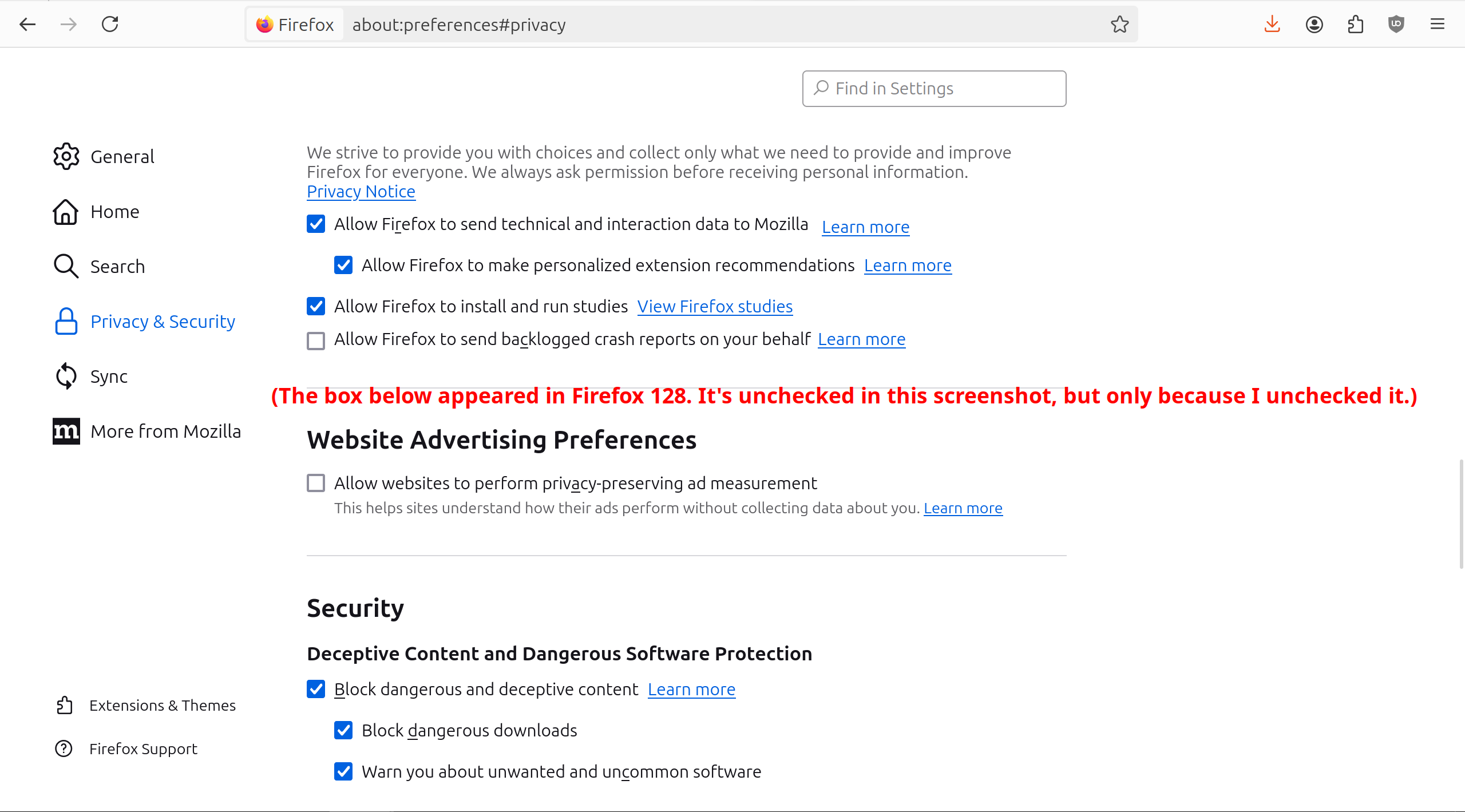- 37 Posts
- 84 Comments

 8·4 months ago
8·4 months agoYes quite a few as other commenters have indicated. Another good one is !boinc@sopuli.xyz. BOINC is an open source platform for volunteer computing that also has hundreds of scientific papers and citations under its belt. There are BOINC projects for medical research, space research, math, you name it, there’s probably a BOINC project for it. Anybody can start a BOINC project and you choose which projects you contribute CPU/GPU time to. You can pick more than one at a time. You may recognize some of the people hosting BOINC projects: Large Hardon Collider, Max Planck Institute, University of Washington Institute for Protein Design, etc

 0·4 months ago
0·4 months agoThe question is, how do we pay content creators? Nostr has a potential solution. In the last two months, their users “zapped” aka tipped nearly a million dollars ($950k) to content creators on their platform. And it doesn’t just make it easy to pay content creators, but to also put a portion of your “zaps” towards the relay you use or development of the software if you want. If you have a nostr account, you can easily tie it to a lightning address to send/receive tips, nostr doesn’t take a fee. Relays can also portion out a bit of their zaps for the people who publish the most engaging content on their relay. The possibilities are quite extensive. And because it’s over lightning, zaps happen instantly and for pennies or less in fees. And you could expand this infrastructure from just tweets to web browsing as well. In nostr, as you could in theory for the rest of the web, you can say “I want to donate $5 a month, split it up among all the posts I liked”. Though, you can use nostr without zaps at all.
For those unfamiliar with nostr, it’s a decentralized social media software much like ActivityPub/mastodon, the main use right now is as a twitter/instagram clone but there’s also a reddit-style section being built up as well. Moderation abilities from the perspective of the instance/relay are identical to activitypub/mastodon. But one bonus if that if your relay goes down, you don’t lose your identity, since your identity and relay are separate. And if you change apps or relays (you are typically connected to multiple relays), all your content moves with you seamlessly. And the payment/zap infrastructure is all decentralized, relays don’t ever custody or manage the payments. If you tip a content creator, it goes directly from you to them. The lightning network has basically limitless transaction capacity. If you have cash app, it supports lightning, so you can already send zaps (you will need different apps to receive zaps though because cash app doesn’t support the LNURL standard). Strike natively supports it. And because it’s lightning, it works in every country automatically.
Long-term, if I am a content creator, which “fedi”-type system is going to be attractive to me? One where users can send me tips and mircopayments or one where they can’t? This is why I think nostr is going to win out long-term over AP/Mastodon. Mastodon could add this kind of functionality but I don’t get the impression they’re open to it. People may not want to commit to yet another $5/month subscription to a YouTuber’s patreon or nebula or whatever, but they are happy to tip 1-10c after watching a video. So there’s a psychological beauty to micropayments as well. As some random person I have made like 7c on tips this month, but I’ve also given out plenty to other people.
Instead of trying to clone, it may be easier to:
- Install Fedora to new drive
- Reinstall any packages you modified from base install
- Copy over your home directory including hidden directories, plus /etc

 4·4 months ago
4·4 months agoA. I wouldn’t because that implies by being around longer I know more or am more right about some things than young people. I’ve accumulated knowledge, but that doesn’t mean anybody should listen to what I have to say or that I’m wiser. There are certainly times that is true, but it’s also true that we have a lot to learn from them and we should listen to them.
B.
- Health is your greatest wealth.
- Love is the answer and all that matters. Be good to others
- Stay humble
- Stack sats

 1·4 months ago
1·4 months ago

 3·4 months ago
3·4 months agoYou may want to look into Qubes, it can natively route an entire OS through Tor. Note that routing all your traffic may hurt your anonymity. For example, there what if an app on your machine reaches out to somewhere and reports the serial number of a piece of hardware and it does it through your “anonymous” Tor connection? Virtualizing that hardware can help avoid that. Think through your threat model.
I always think in terms of time, and I have a spreadsheet to track my “actual hourly” i get from work and side hustles so I can know which are working best for me. When evaluating items to buy, I think about how much time it would take me to buy the item instead of the amount in dollar or whatever since the dollar’s value changes with time. This also helps me because I generally try to not think in USD to begin with since I mostly use Bitcoin. At first, I tried thinking in BTC but it’s volatile enough that this is not much any better than thinking in USD. Tying things to hours makes more sense. If you know your “average hourly” it’s easy to determine whether or not to fix something yourself or hire somebody else to do it.

 412·4 months ago
412·4 months agoYou can downvote this because you’re mad that blockchain exists, for those who don’t know the actual real life use case: Bitcoin has been around for 15 years, it is a blockchain. It has a real life use case.
I can send money, with my android phone, from my couch, in my underwear, to anybody else on planet earth who also has a phone and a halfway reliable internet connection. The transaction is not only sent, but actually settles, in under a second with Bitcoin lightning. And I pay pennies in fees. No going to the bank, no bank holidays, no paying wire fees or making sure their bank can talk to my bank. It’s just simple and instant and it works. It doesn’t matter if they are a dissident or if their country doesn’t allow women to own bank accounts, the transaction goes through anyways. In many countries, their app can also instantly convert that BTC into the currency of their choice and deposit it to their bank account. That’s assuming they have access to stable banking infrastructure, which billions of people do not.
Bitcoin has delivered on its promise of being a currency with a capped supply (21 million coins) and transaction system consistently for 15 years without a single hack, without a single hour of downtime, without a single hiccup. It just works.
You can argue that Bitcoin isn’t better than <insert local currency and transmission system>. You can argue that there are “better” solutions. But it has a clear use case. I use it on a daily basis and it has a fifteen year trend of continued growth whether you are looking at total market cap (bigger than Sweden’s GDP), number of nodes, number of transactions, whatever.
Most everything negative you’ve heard about Bitcoin is either hyperbolic or about other crypto. FTX wasn’t Bitcoin. Crypto coins collapsing or people being rugged? Not Bitcoin. For more information, FAQs, and myth-busting, check out http://bitcoin.rocks

 3·4 months ago
3·4 months ago
Project 2025 wants to:
- Outlaw pornography
- Outlaw abortion
- Outlaw homosexuality
- Eliminate all major checks on presidential power. Say goodbye to the system of checks and balances
- Replace many federal workers with those who are loyal only to the president
www.defeatproject2025.org breaks it down by topic, also highly suggest John Oliver’s segment on it
Project 2025 wants to:
- Outlaw pornography
- Outlaw abortion
- Outlaw homosexuality
- Eliminate all major checks on presidential power. Say goodbye to the system of checks and balances
- Replace many federal workers with those who are loyal only to the president
www.defeatproject2025.org breaks it down by topic, also highly suggest John Oliver’s segment on it

 3·4 months ago
3·4 months agoI need something like a Spotify subscription for open source to assuage my guilt of the great value I extract for my personal use of open source.
I would love to see something like this, where I can contribute to an open source project while also contributing to all their dependencies. Maybe such a thing exists and I just haven’t heard of it yet.

 3·4 months ago
3·4 months agoLook, I love privacy and I agree Bitcoin needs more of it. Many developers/OSS projects would have trouble using XMR, the off-ramps are few and far between. Bitcoin’s privacy continues to get better and you can achieve significant degrees of anonymity with techniques like coinjoin etc. Lightning is pretty opaque, all the data on chain is who you opened your lightning channel with, not ANY of the transaction data between you and any other party (and remember, a single lightning channel can route payments to any other lightning user). And you can run a lightning node/wallet on an android. Long-term Bitcoin could absorb Monero’s entire market cap by simply copying its privacy features into a future protocol upgrade, which I hope it does as it has with experimental protocol changes first tried on other blockchains. And the Bitcoin community seems very pro-privacy.
Monero has no functional L2 and only has “low fees” because it doesn’t have the tx volume to get higher fees. Bitcoin has had a functional L2 for 5+ years now. Lightning fees are usually a penny or two per transaction, if sending large amounts, an on-chain tx is still only like $1.50 most of the time. Settlement on Monero takes minutes instead of less than a second on lightning, not that it matters for this particular use case. It doesn’t have nearly the network of developers, users, or other people in the ecosystem backing it. Monero also has larger variable-sized blocks. Larger block sizes = more hardware requirements to run a node = more centralization. Bitcoin already had that debate and every other debate and chose decentralization at every turn. Monero chose bigger blocks just like Bitcoin cash did. Bigger block is not a scalable solution while remaining decentralized. No thanks. All of humanity’s transactions shouldn’t be stored on the blockchain for eternity, that is incredibly inefficient and needless. Nano has similar problems with design, no way to compensate those who run the infrastructure for the network, and pretty much nobody using it, and probably a massive pre-mine.
There are some fundamental problems to blockchain, digital currency, or decentralized ledgers. If you want a decentralized ledger, space is your biggest limitation. If you want more space, you get more centralization. Every other coin chose more space for “lower fees” or “faster transactions”, Bitcoin chose decentralization at every possible turn (at the cost of having less space) and will continue to do so. For me, that is bar none the most important factor. And now it also has “fast transactions” and “low fees” thanks to L2s.

 4·4 months ago
4·4 months agoLove hearing from devs that donations are coming into their projects, thank you for sharing that! Contributing time and expertise is just as important thank you for your contributions 🫡🫡🫡

 5·4 months ago
5·4 months agoI’ll start, I donate to a few regularly via Github sponsors. I like that it’s recurring. I also donate one-off to ones as I come across them, but generally donate regularly to software I use regularly, particularly if I somehow am using that software to make money. I really like the idea of a portion of my donation going to upstream libraries, though tbh I’m not confident if Github sponsors does that or not.
I mostly donate w Bitcoin, except Github sponsors since they don’t take it. I also donate to a few orgs like EFF and OpenSats which are OSS-adjacent or help OSS tools I like exist. When I see apps I like have published a new release and they announce it on nostr, I usually send them a bit via zap as well, but most apps I use aren’t on nostr.

 87·4 months ago
87·4 months agoBitcoin is one of the most successful open source projects to have ever been created, and it gets downvoted to hell anywhere it gets brought up. 15 years of growth in network size, usage, and capability. Surviving attacks and attempted bans from nation-states. Not a single hour of downtime, not a single hack, reliably transferring money across the globe to anybody with a cell phone and a halfway reliable internet connection in seconds to minutes for pennies to dollars in fees. 100% open source and decentralized, uncorruptible, open to whoever wants to use it, the way currency should be. It’s got a market cap bigger than Sweden’s GDP and is already more reliable and widely accepted than most national currencies. Nobody can make it print money it isn’t meant to print or move money it isn’t supposed to move.

 33·5 months ago
33·5 months agoHow to contact your MEP. We beat this bill last time, we can beat it again https://www.europarl.europa.eu/meps/en/home

 3·5 months ago
3·5 months agoHow to contact your MEP https://www.europarl.europa.eu/meps/en/home







Not a distro but Qubes. Incredible security and privacy out of the box. Not for everyone but absolutely one of the most interesting developments in the OS world in the past decade or two.